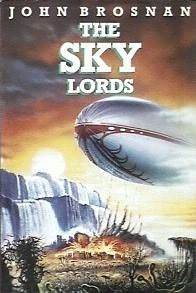
The Shockwave Rider
Book Description
In a world where a totalitarian regime controls every aspect of life, one man dares to disrupt the digital landscape. Nickie, a fugitive with a genius for hacking, becomes the ultimate target in a high-stakes game of cat and mouse. As he navigates a haunting reality filled with betrayal, surveillance, and unexpected allies, the boundaries of freedom and privacy blur. Will he manage to outsmart a system designed to crush dissent, or will his rebellion ignite a spark that changes everything? Experience the exhilarating pulse of resistance—how far will you go to reclaim your identity?
Quick Book Summary
"The Shockwave Rider" by John Brunner is a visionary science fiction novel set in a near-future America dominated by a massively interconnected data network and controlled by a powerful technocratic elite. Society is fragmented, running on a precarious balance of information flow, surveillance, and socioeconomic disparity. Nickie, a man equipped with extraordinary programming skills, breaks free from his manufactured identity and embarks on a journey of resistance against the omnipresent regime. As Nickie traverses the country's digital and physical landscapes, he forms alliances with other outcasts, challenges the mechanisms of control, and uncovers deep-seated corruption. The novel explores prescient themes of privacy, digital identity, and the manipulation of society through information, all while posing urgent questions about autonomy and rebellion in a world increasingly shaped by technology.
Summary of Key Ideas
Table of Contents
The Influence of Information Networks
John Brunner's "The Shockwave Rider" opens in a dystopian future where society is intricately regulated through vast, interlinked computer networks overseen by a shadowy elite. The population is segregated into corporate-controlled enclaves, with mobility and opportunity dictated by social status and digital profiles. Against this backdrop, Nickie Haflinger, the protagonist, emerges as an anomalous figure. A product of government experimentation, he possesses a peerless talent for subverting data systems, enabling him to repeatedly reinvent himself and evade capture, even within the panoptic network state.
Surveillance and Loss of Privacy
Central to the novel is the omnipresent loss of privacy and collective anxiety it breeds. The government and corporations wield data as a tool for coercion, able to monitor, categorize, and manipulate the masses. Personal information becomes weaponized, with citizens targeted and pacified through algorithmic prediction and punitive surveillance. Nickie's journey is marked by the continual need to conceal his movements, adopt new identities, and hack the system, reflecting the existential threat posed by technological overreach and eroded boundaries between public and private life.
Identity and Reinvention
Despite the hostile environment, Nickie is not alone in his dissent. Throughout his fugitive odyssey, he encounters a spectrum of characters also disenchanted with the status quo. These alliances serve as catalysts for his evolving worldview, revealing the complexities of resistance and the enduring human desire for connection. Together, their acts of sabotage and subversion build toward the radical prospect of a new society, one where individuals hold power over their own information and destinies.
Rebellion Against Systemic Control
Brunner delves deeply into the fragmentation wrought by runaway technological development and rampant inequality. Communities are isolated, with fear and mistrust sown between groups. Many are left behind or actively oppressed by the system's relentless drive for efficiency. Yet the narrative offers hope through Nickie's quest to spread a virus—an emancipatory program designed to democratize information—provoking a reckoning across the networked society and offering a vision of egalitarian change.
Societal Fragmentation and Inequality
Concluding, "The Shockwave Rider" is both a thrilling cat-and-mouse cyberpunk story and a meditation on technology's double-edged sword. Brunner presciently anticipates debates about surveillance, digital identity, and social engineering, urging readers to consider who controls the future and at what cost. The novel challenges notions of security and control, ultimately advocating for a collective reclamation of agency amid accelerating technological shockwaves.
Download This Summary
Get a free PDF of this summary instantly — no email required.





